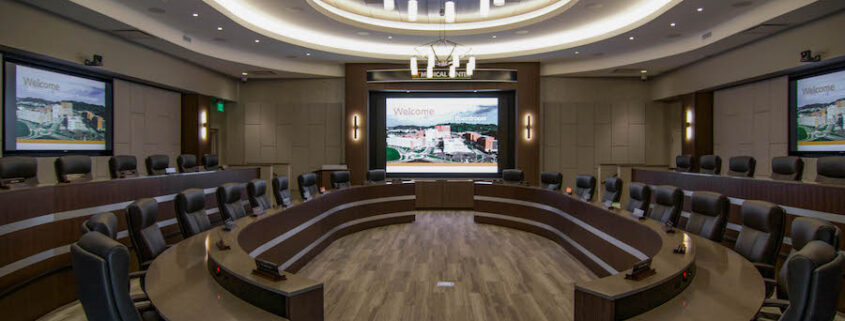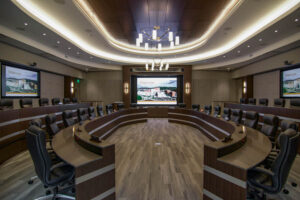Breaking Down Barriers with Collaboration Spaces
Become an Active Part in Improving the Healthcare Field
Effective communication and teamwork are paramount in the healthcare field, yet the challenge of breaking down silos and fostering information sharing among medical professionals persists.
Collaboration spaces bring together the brilliant working minds of doctors, nurses, specialists, and administrators, uniting them to transform patient care in Nashville, TN, and beyond. In this article, we’ll explore how these spaces reshape the healthcare landscape, enhance patient outcomes, and revolutionize the way medical teams work together.
SEE ALSO: 4 Common AV Mistakes to Avoid at Your Next Corporate Conference
Siloed Communication Challenges
Picture this scenario: A patient’s treatment involves input from multiple specialists, but each works in a separate department. Traditionally, communication hurdles hindered the seamless exchange of critical information. Collaboration spaces are the antidote to these challenges, offering purpose-designed areas to bridge the gaps, empowering healthcare professionals to discuss cases, share insights, train new staff, and collectively formulate treatment plans.
A Hub of Multidisciplinary Innovation
Collaborative spaces can include lecture halls, conference rooms, huddle spaces, and other gathering spots within a facility. They are so much more than just rooms with chairs and screens. They’re innovation hubs where the boundaries between departments dissolve. Surgeons collaborate with radiologists, nurses confer with pharmacists, and administrators offer valuable perspectives. This results in a holistic treatment plan that considers a patient’s unique circumstances and leads to better care outcomes.
Medical decisions often involve diverse viewpoints, which can lead to conflicts. Collaboration spaces provide a neutral ground for such discussions. Medical professionals can openly debate treatment approaches backed by evidence and insights, leading to well-informed consensus decisions that prioritize patient well-being.
Patient safety is non-negotiable in healthcare. Collaboration spaces contribute significantly to this aspect. Through multidisciplinary discussions, medical errors can be minimized, and potential risks can be identified and mitigated before they escalate.
The Technology Factor
In the digital age, collaboration spaces have interactive displays, video conferencing tools, and data-sharing platforms that enable quick and seamless information exchange. For example, a radiologist can discuss findings with a team across the world via a video meeting, and caregivers can access patient records in real time, ensuring swift and informed decision-making.
High-definition cameras capture essential body language, while noise-reducing microphones filter out background noise. High-speed networking keeps everyone connected without lag or dropping the connection, and room reservation technology ensures no one double-books a room.
Administrators and other stakeholders that decide to dedicate spaces in their Nashville-area healthcare facilities are championing the exchange of essential information efficiently and effectively.
Unlock the Potential of Technology-Driven Collaboration Zones
Are you ready to unlock the potential of collaboration spaces in your healthcare institution? Contact our team here to further explore how our advanced technology solutions enhance communication, teamwork, and patient outcomes in your facility. Together, we can build a healthier, more connected future.











